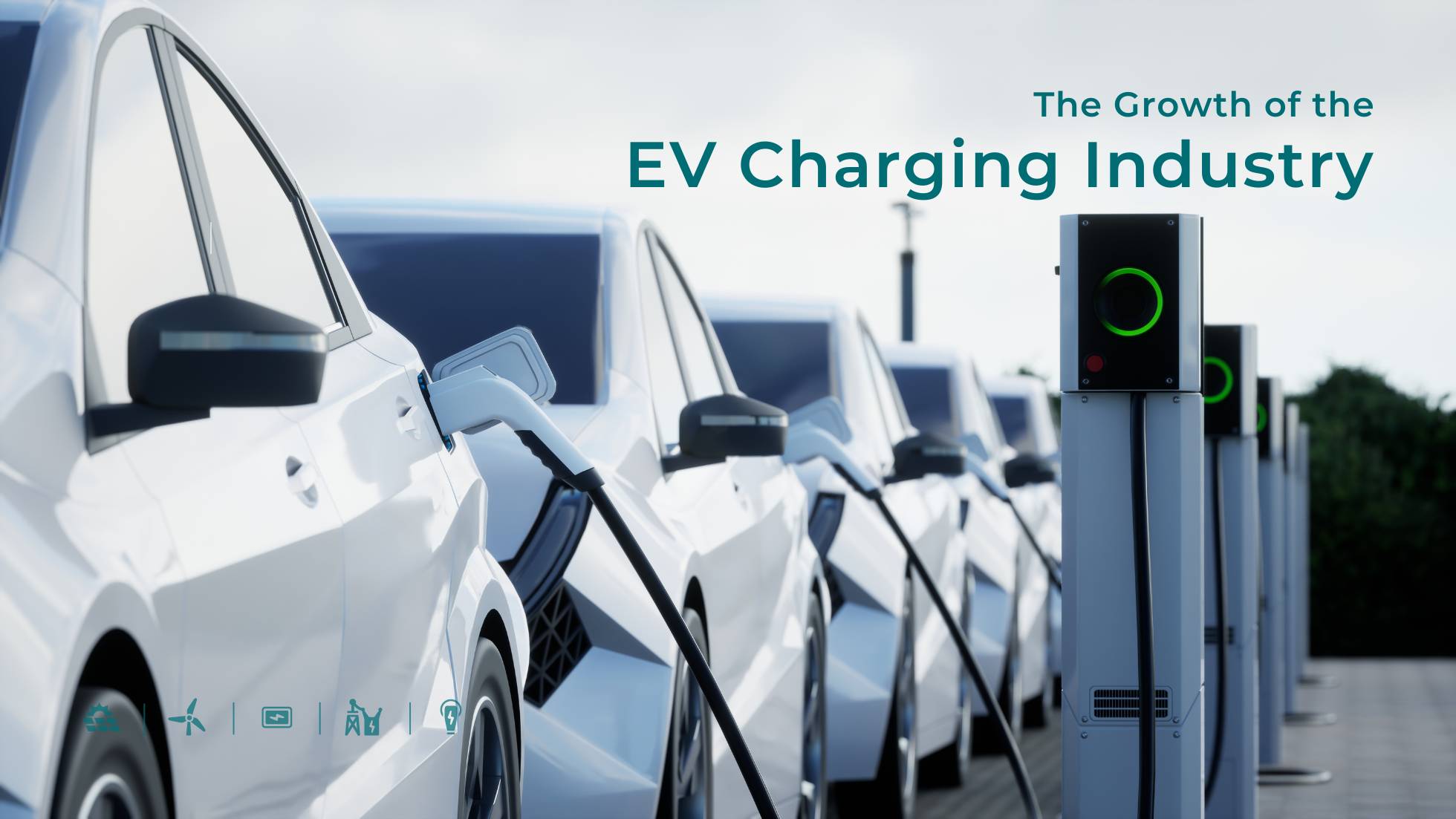Constructing Data Centers that Power Artificial Intelligence (AI) Learn More
The Growth and Evolution of the EV Charging Industry

An increasing number of automakers are producing electric models, and the 2021 Infrastructure Investment and Jobs Act allocated $7.5 billion for EV charging infrastructure. The goal is to have more than 500,000 more public charging stations in operation by 2030.
PwC’s analysis has produced several statistics that underscore the expected massive growth in EVs:
- The number of charge points in the US is poised to grow from about 4 million today to an estimated 35 million in 2030.
- The electric vehicle supply equipment (EVSE) market could grow from $7 billion today to $100 billion by 2040 at a 15% compound annual growth rate.
- Experts estimate that the US will have 27 million EVs by 2030 and 92 million by 2040
PWC predicts the EV charging market needs to grow tenfold by 2030 to accommodate 27 million EVs on the road. This will require a major push to build an EV charging infrastructure to accommodate a national charging network. It also presents a major opportunity for BEI moving forward.
Innovations in the EV industry
IoT-enabled smart infrastructure technology, including charging equipment, mobile apps, and charge management platforms, is making EV charging more efficient. They enable continuous and remote monitoring as well as data presentations in the form of reports and dashboards. Smart technology also helps alert consumers of usage errors and equipment upgrades in addition to the costs and duration of their charge.
Other technology advancements address the need to dramatically reduce charging times—a challenge that currently prevents many consumers from switching to EV-powered vehicles. Thus, new technology is being developed to operate at power levels exceeding 350 kW (DC), with some prototypes reaching 1,000 kW of charging power. Compare this to the current standard for fast charging, which typically operates anywhere between 50 kW and 350 kW.
On the cutting edge
BEI Construction is seeing a surge in demand for EV charging infrastructure services, mirroring the national shift towards electric vehicles. Additionally, BEI Construction has been undertaking numerous EV infrastructure projects, and supports Level 2 and Level 3-DC fast chargers, single-port chargers, dual-port chargers, and fleet charging. From design, electrical, and civil construction to project management, the company’s end-to-end services can handle EV projects of any size.
BEI’s most notable project is the engineering and construction of 40 charging stalls at Tesla City Center in San Francisco. The services included electrical engineering, structural engineering, utility coordination, and structural updates to the existing garage to support EV charging.
“We see EV charging as a major growth area for us,” says Dominic DiMare, Principal, BEI Construction. “The massive increase in government investment and private sector R&D offers promising opportunities for the industry and our firm.”